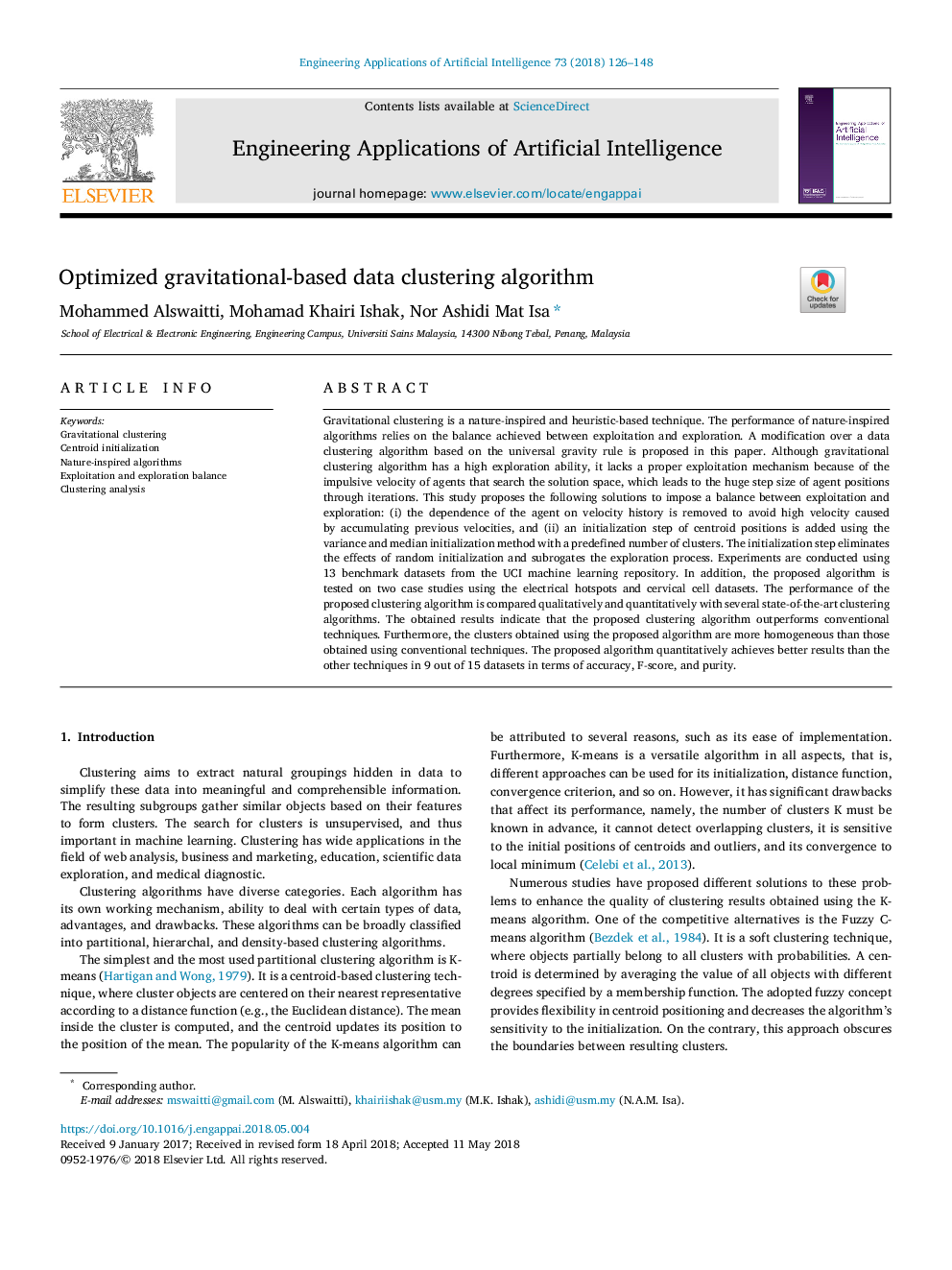| کد مقاله | کد نشریه | سال انتشار | مقاله انگلیسی | نسخه تمام متن |
|---|---|---|---|---|
| 6854156 | 1437405 | 2018 | 23 صفحه PDF | دانلود رایگان |
عنوان انگلیسی مقاله ISI
Optimized gravitational-based data clustering algorithm
ترجمه فارسی عنوان
الگوریتم خوشه بندی داده مبتنی بر گرانشی بهینه شده
دانلود مقاله + سفارش ترجمه
دانلود مقاله ISI انگلیسی
رایگان برای ایرانیان
کلمات کلیدی
موضوعات مرتبط
مهندسی و علوم پایه
مهندسی کامپیوتر
هوش مصنوعی
چکیده انگلیسی
Gravitational clustering is a nature-inspired and heuristic-based technique. The performance of nature-inspired algorithms relies on the balance achieved between exploitation and exploration. A modification over a data clustering algorithm based on the universal gravity rule is proposed in this paper. Although gravitational clustering algorithm has a high exploration ability, it lacks a proper exploitation mechanism because of the impulsive velocity of agents that search the solution space, which leads to the huge step size of agent positions through iterations. This study proposes the following solutions to impose a balance between exploitation and exploration: (i) the dependence of the agent on velocity history is removed to avoid high velocity caused by accumulating previous velocities, and (ii) an initialization step of centroid positions is added using the variance and median initialization method with a predefined number of clusters. The initialization step eliminates the effects of random initialization and subrogates the exploration process. Experiments are conducted using 13 benchmark datasets from the UCI machine learning repository. In addition, the proposed algorithm is tested on two case studies using the electrical hotspots and cervical cell datasets. The performance of the proposed clustering algorithm is compared qualitatively and quantitatively with several state-of-the-art clustering algorithms. The obtained results indicate that the proposed clustering algorithm outperforms conventional techniques. Furthermore, the clusters obtained using the proposed algorithm are more homogeneous than those obtained using conventional techniques. The proposed algorithm quantitatively achieves better results than the other techniques in 9 out of 15 datasets in terms of accuracy, F-score, and purity.
ناشر
Database: Elsevier - ScienceDirect (ساینس دایرکت)
Journal: Engineering Applications of Artificial Intelligence - Volume 73, August 2018, Pages 126-148
Journal: Engineering Applications of Artificial Intelligence - Volume 73, August 2018, Pages 126-148
نویسندگان
Mohammed Alswaitti, Mohamad Khairi Ishak, Nor Ashidi Mat Isa,
